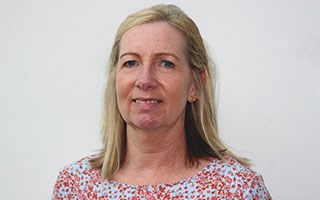
As we slowly begin to recover from the pandemic, PFEW Wellbeing Secretary Belinda Goodwin highlights how we have supported members from day one and will continue to do so on the other side of the crisis.
It’s year since the pandemic and a new world out there. Covid-19 has irreversibly and fundamentally changed our way of life in many aspects.
What remains constant are the core principals of policing and colleagues doing all they can to protect the public. In return, they and their families deserve the very best care and support.
However, there is still much more work to be done in the years ahead as we face the rippling effect of a Covid hangover. Members can be reassured PFEW will lead the way on their behalf as we battle this new issue together.
Long Covid is a real issue, and we are seeing colleagues struggle to recover and continue to suffer from the aftereffects of the virus when they return to work many months down the line. We also know those on the frontline are exhausted.
A majority feel overworked, stressed and are still coming into work despite being physically or mentally unwell – no surprise there when just 14 per cent of officers told us in our latest Demand, Capacity and Welfare Survey they believe there were enough officers to manage the demands being made on them as a team or unit.
So, what are we doing about it? Working with Oscar Kilo on the National Police Wellbeing Service, we are pushing for a cultural change and are regularly in conversations with police chiefs and key decision makers. Far too often - for far too long - operational matters have been put in front of the welfare of officers.
At the height of the pandemic, we realised officers were attending numerous sudden deaths and liaising with the families of victims. One officer attended 15 Covid-related incidents in a space of 24 hours.
This undoubtedly took a toll on the mental health of our members and was traumatic. To help support the mental health of officers doing an extraordinary job the Federation sought expert advice from Dr Jess Miller, a Neuropsychologist at Police Care UK and the University of Cambridge, on how they can manage the difficult situations and feelings they face. We created a video which we shared with all forces which includes various techniques officers can try to combat negative memories, feeling overwhelmed as well as encouraging them to be open and honest with line managers.
The Federation has also been instrumental in helping officers when they need to self-isolate, when they are vulnerable or when they have challenges around childcare. From the very start of the pandemic we also helped with arrangements for officers’ children to go to school, securing flexible working hours and adjustable duties.
We are also continuing to support members financially because many still find themselves under pressure with partners furloughed. Many can’t earn extra money through overtime due to self-isolation or sickness absence.
If this pandemic has taught us anything, it is to appreciate the fantastic colleagues we have who have been out there from day one doing an amazing job of supporting the other frontline services and protecting the public. The Federation has had the backs of members for 100 years and we have never faced such a challenge in all that time, but we have risen to this challenge and will keep on doing all we can to protect the welfare and wellbeing of our colleagues.














